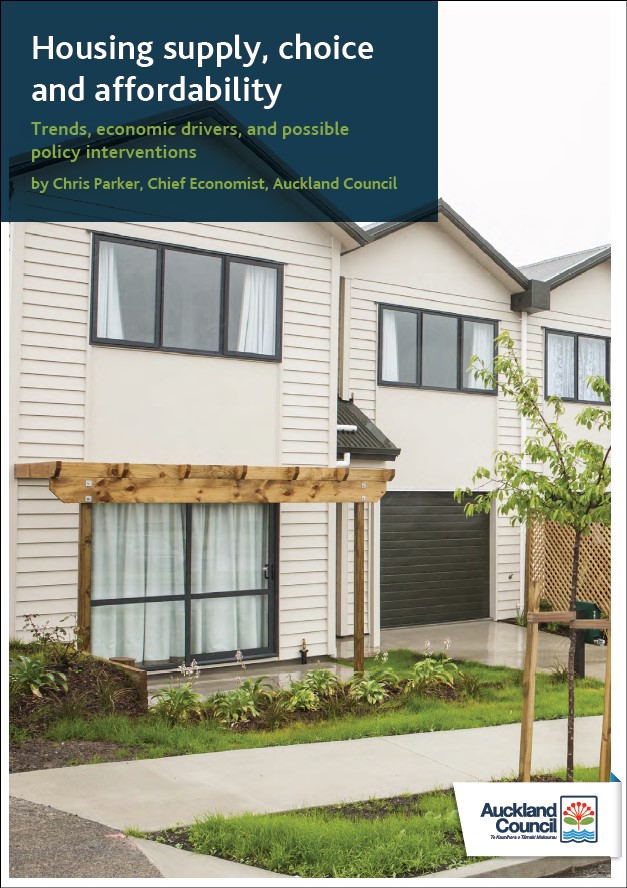Housing supply, choice and affordability
Author:
Chris Parker, Auckland Council Chief EconomistSource:
Auckland Council Chief EconomistPublication date:
2015Topics:
HousingHousing supply, choice and affordability. Trends, economic drivers, and possible policy interventions
Extract from the Executive summary:
Auckland currently has a housing affordability crisis
The median house price in metropolitan Auckland is about ten times greater than the median household income. To give context, ideally it would not exceed a ratio of three to one.
This increase in prices has benefited a large number of owner-occupier households and landlords in Auckland.
For other New Zealanders, and in particular younger generations, the prospect of being able to own their own home near where they work and play in Auckland is at risk of slipping from their grasp. A range of social risks will strengthen over the years and decades to come if this is sustained as this inequality becomes more entrenched.
People across the country are anxious that Auckland’s property market may bust and harm the national economy (including Auckland). People across the country and younger generations are worried that little if anything can and will be done about it.
The good news is that with strong resolve and careful sustained management, the issues can be managed in the long-run. There is a wide range of measures on the ‘supply side’ that need to be undertaken (or continued) by both the council and the government.
This report advises on a long-list of possible solutions
The council’s Chief Economist was requested by the Mayor and Deputy Mayor to analyse this housing affordability problem, identify causes, and give preliminary advice on a long-list of possible solutions. The advice is independent, and it does not bind the council.
Out of scope is the issue of ‘affordable housing’, which relates to homes at the lower end of the price spectrum.
The scope of solutions considered is wider than just the council (i.e. it includes the government, industry, and the community). This is to give a more holistic understanding of the issue and solutions, and scope for collaboration and influence. ...
Auckland Council, October 2015
